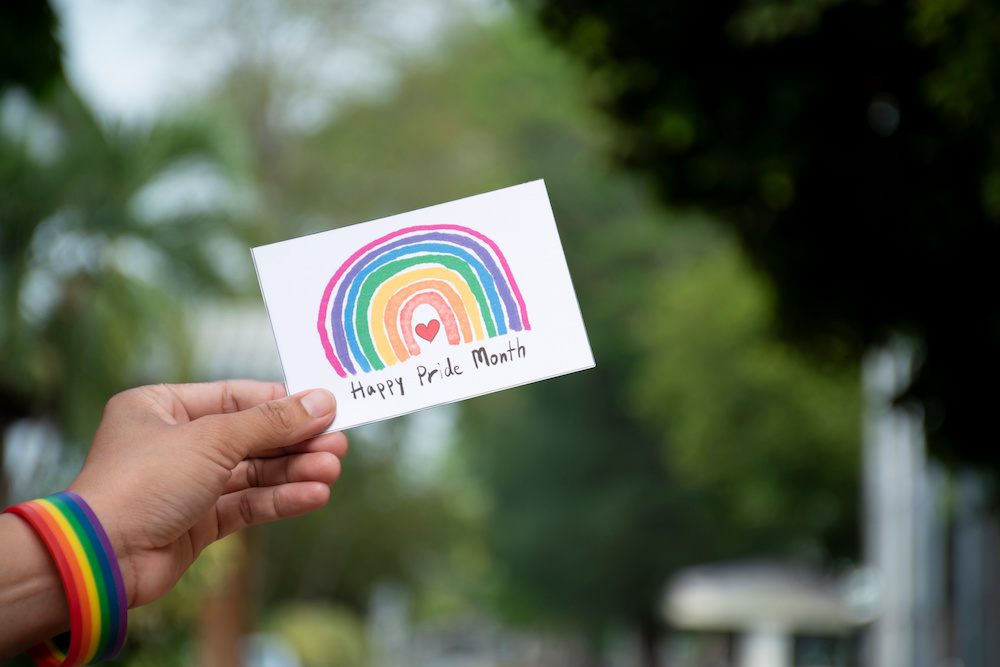On June 28th 1969, police in New York City raided a bar frequented by LGBTQ+ patrons. These kinds of raids were common on both sides of the Atlantic in the 1960s where lesbian, gay, bisexual and trans people routinely faced discrimination and marginalisation. This time however, the patrons fought back.
The Stonewall Riots (named after the Stonewall Inn, Greenwich Village) marked a watershed moment in the LGBTQ+ rights movement and is the reason why June has been celebrated as Pride Month since 1970.
Pride is a Protest
Since then, hard-fought fights have been won. Homosexuality, was decriminalised in England and Wales in 1967, and Scotland and Northern Ireland followed suit in 1981 and 1982. The World Health Organisation stopped classing homosexuality as a mental and behavioural illness in 1993 (and trans identities in 2018) and trans people have been able to have their gender legally recognised since 2004. Same-gendered relationships were given legal legitimacy in 2005 and equal marriage was passed in to law in England and Wales in 2014 (and all parts of the UK by 2020). So job done?
If some of those dates above surprised you, don’t worry, you’re not the only one. It’s very easy to see the battle for LGBTQ+ rights as something completed and of LGBTQ+phobia as a thing of the past. For people who experienced (and continue to experience it) however, there are lasting impacts.
The path towards greater inclusion does not head only in one direction. Reports of homophobic hate crimes doubled from 2017 to 2022 and transphobic hate crimes increased by 240%. Despite numerous calls for the UK Government to ban so-called conversion therapy (the practice of attempting to cause an LGBTQ+ person to become heterosexual or cisgender by psychoanalysis, behaviour modification and spiritual counselling etc.) the government has yet to do so. There is also the everyday stigma, biases and prejudices which LGBTQ+ people, their partners and families may experience.
So what can I do?
As professionals working in healthcare, we all have a role in making sure our LGBTQ+ patients know that they’re accepted and supported by ourselves and our services. Here are some steps you can take to make sure your celebration of Pride Month is meaningful.
Hang a flag, put up a poster, or wear a rainbow lanyard – Visible inclusivity can never be undervalued. Many people have told us that seeing a rainbow flag, or LGBTQ+ inclusive literature at a primary care service makes them feel safe, accepted and expected. What may seem like a small thing can have a huge impact. It’s important to remember that visible signs of inclusion need to be the starting point for allyship and not the end point as just waving a flag without a deeper commitment to inclusive practice risks being tokenistic.
Use open and inclusive language – A microaggression is an exclusionary behaviour which is linked to discrimination, bias or assumption about people with certain identities. This can be based around a person’s sexual orientation, trans status, or other characteristics (ethnicity, disability, etc.) Microagressions have been likened to mosquito bites where one or two occurrences can be easy to brush off, but that become much more difficult if you’re constantly having to correct an incorrect assumption. We can include people in our language by using open words like ‘partners’ and ‘parents ‘ and not assuming a person’s pronouns. Language like this is inclusive of everyone, not just LGBTQ+ people. The ABC of LGBTQ+ Inclusive Communication from Kings College is a great resource on this.
Keep on learning – Whether it’s on an individual level, or with others at our service, we can take opportunities to increase our knowledge of LGBTQ+ communities and learn to be more effective allies. There are some great guides out there on allyship from Stonewall and LGBT Foundation as well as others online, and more in depth training options can be offered by Pride in Practice and LGBT Foundation’s Training Academy.
Pride Month is an excellent time to focus on LGBTQ+ health outcomes and to ensure that inclusion is embedded in everything we do. But remember, it’s not just during Pride Month that we’ll need to be aware of our LGBTQ+ patients; these patients will need and appreciate our support always.
Author: Aimee Linfield (she/her) – Pride in Practice Manager – Greater Manchester
Why not share Pride Month with your patients via your social media channels? Have a look at our ready-made posts here [PLUS]





0 Comments